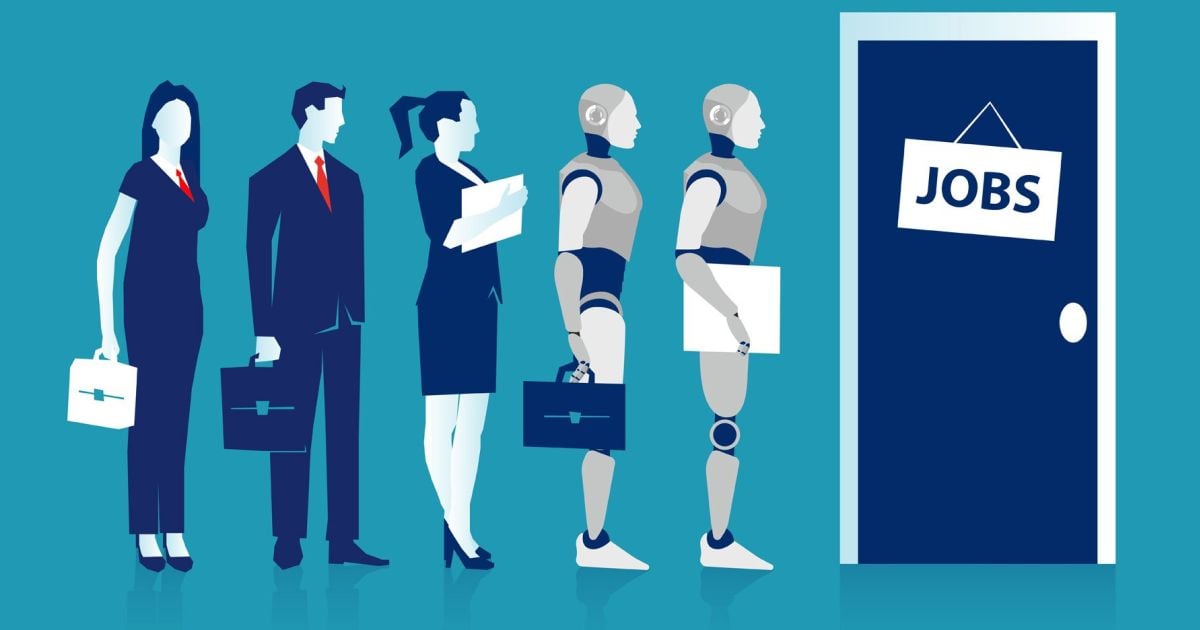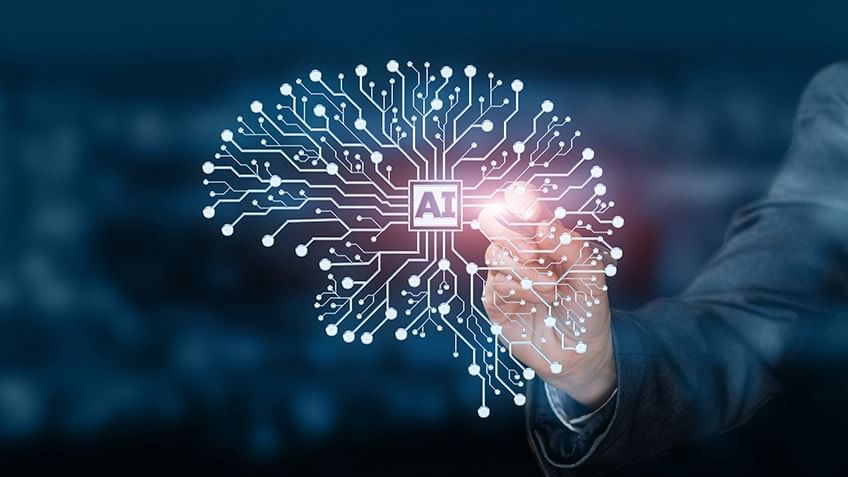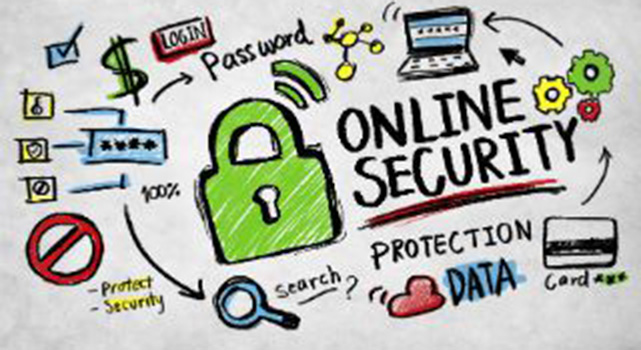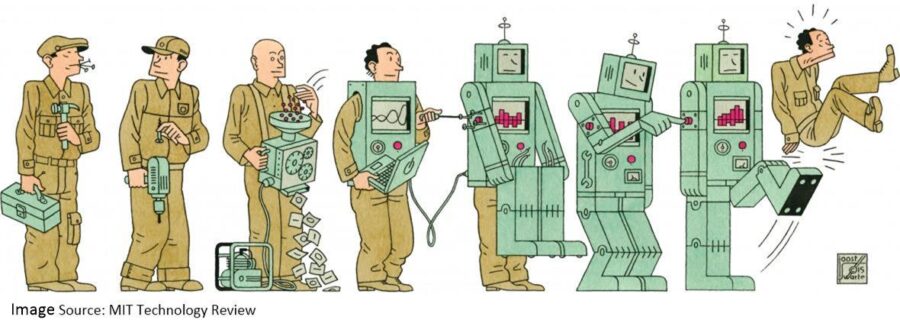Artificial Intelligence (AI) is a topic that has always frightened me. I grew up watching and reading futuristic fictional horror stories of how AI is eventually able to take over the world and now it is becoming a reality. After watching PBS’s In the Age of AI video, my fears are simultaneously confirmed and put at ease. The informative video provides a multitude of perspectives on AI ranging from its past evolution to predicted future, both its good and its bad.
The video was refreshing as the director chose to interview experts and ordinary people on AI and have them share insights of both the positive and negative impacts of AI. I enjoyed this unique approach to explaining the emerging technology and as such I feel as though I have learned a lot.
Kai-fu lee, a computer scientist and prominent businessman in the AI sector, was one of my favorite speakers on the subject. He caught my attention by tackling the statement “we will all be slaves to AI”, a warning I have often heard. He explained this to be a myth and reassured listeners that AI is nowhere near advanced enough to displace humans.
Although robots can’t displace humans as a whole, they do pose a very real threat to our jobs. While it is said most AI do not impact humans jobs, the ones that do have a clear effect. It is predicted that in the next 15 years 50% of jobs will be threatened by AI in some capacity.
I learned that the jobs most at risk are what is classified as white collars jobs. White collar jobs have a quantitative analytical process that makes it easier for AI to replicate. These jobs include reporters, traders, analysts, telemarketers, customer service, etc. Blue collar jobs will eventually be replaced too, but not as rapidly since they possess hand eye coordination skills and physical labor that is difficult for AI at this stage.
While job loss is a concern for many, another expert countered that job loss is a part of the cycle of life and sign on the evolution of work. Yes, some jobs will be lost but new ones will be created. The speaker pulls evidence from jobs 20-40 years ago, in which 50% of the jobs do not exist in the modern age. Elevator operators, telephone operators, bowling pinsetters etc. are no longer prevalent sources of employment, yet there are many new fields people can explore instead.
Kai-fu lee speaks on the topic again, saying “history is only trustable if it has multiple repetitions of similar events. Very few tech inventions have the same magnitude as the AI revolution”. He says there are only three comparable inventions: the steam engine, electricity, and the computer. AI is fundamentally replacing our cognitive process in doing a job, not only replicating it but surpassing our own capabilities. AIs can perform with more precision and efficiency, thus increasing productivity.
It is said that AI can be blamed for most current job loss as well. While 20% is offshoring, the majority of job loss is due to AI. Jobs being taken over by AI comes with a multitude of issues. Not only does it create unemployment, but it causes decrease in income for those who remain employed as AI makes their jobs simpler. Furthermore, AI doesn't pay taxes so the community is still left paying the full price of taxes despite lower employment and income. As a result, automation has decreased the standard of living over the past 15 years by 10-15%.
The impacts of AI on the workforce doesn’t end there. The video states that children of parents who have lost their job because of automation struggle with educational attainment thus creating cross generational implications. Molly Kinder
These all lead to the same underlying issue and first main takeaway, which is that AI is not only a threat to the workforce but also to social progress. However, the benefits of AI are also extreme. The technology has huge room for growth with 90% of the market left to explore. As the market develops there is potential for new jobs and an abundance of them. AI makes business more efficient and thus allows for company growth as well. AI pioneers are among some of the richest people and companies. This segues into the next major takeaway, which is that AI brings about great wealth, but is the cost for these riches too much?
AI is a wealth creation market, sadly this is where things get really frightening. “AI is a set of tools that can help you maximize an objective function and that function can ‘make more money’”. This function is without regulation and so AI can delve into our lives to such an extent that it would make almost everyone who knows the truth uncomfortable.
So what is it that these AIs do? They surveil you in every essence of the word. Pedro Domingo asserts that everything you do and everywhere you go is recorded and produces data for computers to learn and use to “serve you better”. This topic directly relates to Blog 2, Privacy Online and Off, as AI tracks and monitors so much activity that people are not aware is tracked. Domingo cautions that to “serve you better” is a dangerous sentiment though. AI adapt the world to you which can create a skewed lens of the world. The companies that control the data don't necessarily have the same goals as you and their intention with your data can be less than pure.
Shoshana Zuboff invented a word for this type of constant log on our data. She calls it “surveillance capitalism”. While nature fell victim to industrial capitalism, she claims the private human experience falls victim to surveillance capitalism. In this form of capitalism, the human experience is claimed by companies and governments as a free source of raw material fabricated into predictions of human behavior. Companies collect your data to be analyzed and then sold to marketers, advertisers, etc. to target products and news towards you based on individual likes, without your knowledge.
With this in mind, Mrs. Zuboff poses the questions: Are we users of social media or is social media using us? Are we searching google or is google searching us?
This phrasing puts the world of AI and technology into perspective. Our online security is dwindling, with everything we do monitored, tracked, and sold for profit without our direct consent. Identity theft is also a concern with so much out there on the internet and all of the personal information gathered is for sale.
Another major takeaway is that privacy in general is a thing of the past. Private thoughts are no longer private, and with prediction algorithms so strong and well refined, businesses hold immense power.
Business gained such a spike in profits and power from knowing all these details of individual’s private lives, for example between 2000-2004 google revenue increased 3590% because of data mining. Google and similar companies now actively go out of their way to maintain this massive wealth of knowledge. It has been proven that companies will buy personal data from not only health and wellness apps but also credit card processors. These companies do this to analyze your information and use that information to increase the accuracy of behavioral predictions. These companies will then sell your data to third party companies.
Industry leaders disclose it's not just what you post or say, it's that you post and how you say things. All a company needs to do is provide a free service to the consumer and in turn get unlimited data insights into your life. It's not just social media and online sites to be weary of either.
Surveillance is all over, even in your homes. Devices like Alexa, Google Home, and many more are found in kitchens, living rooms, even bedrooms across the globe. Smart devices are able to hear and compare changes in speech, voice, and cadence overtime. This allows simple harmless questions about weather, dates, and times to turn into intense analysis of yourself for mass corporations. Based on just those simple statements they can determine if you have a cold, if you're manic, if you're depressed and more. This is absolutely terrifying.
Even worse, massive contagion experiments discovered that businesses can influence behaviors and emotions via the internet and can do it in a way that bypasses users' awareness. This can drastically affect democracy as AI knows who people are, how they vote, and their gullibility level. From there, they can target people whose votes they want by sending these individuals messages and reminders to vote. With AI the same message has the power to reach the masses in differing forms to best suit each individual who receives it and make them believe it. Depending on the message this can cause a national security threat and upheaval democracy as we know it.
On the other hand, AI has the ability to minimize and alleviate national security threats. AI gives governments the increased capability to scan countries for social unrest. Surveillance data can scan people and send it to AI to analyze terrorism risk assessment. Unfortunately, governments can also misuse the power and utilize AI to infringe on human rights. While AI can be incredibly accurate that doesn’t make it bulletproof and its assumptions do not justify punishing an innocent person for a possible future crime.
China is a prime example of the dangers of a government abusing the power of AI. In China, surveillance is kept everywhere as a constant reminder someone is always watching. They can track people by cars, faces, or even how they walk. People, specifically uighurs who face collective ethnic punishment, are assessed for terrorism risks and arbitrarily detained in re-eductaion camps where there are reports of death and torture. No aspect of any citizen's life is safe from analysis. Barcodes are even found placed on home doors to identify what kind of citizen lives there. China promotes this method of intense AI surveillance to other countries with the promise of political stability, safety, and emergency protocol. So far, 58 countries have began to adapt this system
Due to these reasons, the idea was presented that perhaps AI will be a tool better used for authoritarian governments than democratic ones.
Whether by tech companies, marketers/third party agencies, private actors, or government AIs are tools that will serve the people who control them. Any individual person or entity, or group with enough money can purchase gathered intelligence to use as knowledge. These parties see this knowledge as power/influence and may not have your best interests at heart. According to the In the Age of AI video, “never has the potential of human flourishing been higher or the stakes of failure greater”. AI has the power to steal your job and invade your privacy in the wrong hands However, in the right hands AI has the power to “liberate us from doing routine jobs and push us to do what we love and push us to think what it means to be human” and create an age of enlightenment.
Shoshana Zuboff invented a word for this type of constant log on our data. She calls it “surveillance capitalism”. While nature fell victim to industrial capitalism, she claims the private human experience falls victim to surveillance capitalism. In this form of capitalism, the human experience is claimed by companies and governments as a free source of raw material fabricated into predictions of human behavior. Companies collect your data to be analyzed and then sold to marketers, advertisers, etc. to target products and news towards you based on individual likes, without your knowledge.
With this in mind, Mrs. Zuboff poses the questions: Are we users of social media or is social media using us? Are we searching google or is google searching us?
This phrasing puts the world of AI and technology into perspective. Our online security is dwindling, with everything we do monitored, tracked, and sold for profit without our direct consent. Identity theft is also a concern with so much out there on the internet and all of the personal information gathered is for sale.
Another major takeaway is that privacy in general is a thing of the past. Private thoughts are no longer private, and with prediction algorithms so strong and well refined, businesses hold immense power.
Business gained such a spike in profits and power from knowing all these details of individual’s private lives, for example between 2000-2004 google revenue increased 3590% because of data mining. Google and similar companies now actively go out of their way to maintain this massive wealth of knowledge. It has been proven that companies will buy personal data from not only health and wellness apps but also credit card processors. These companies do this to analyze your information and use that information to increase the accuracy of behavioral predictions. These companies will then sell your data to third party companies.
Industry leaders disclose it's not just what you post or say, it's that you post and how you say things. All a company needs to do is provide a free service to the consumer and in turn get unlimited data insights into your life. It's not just social media and online sites to be weary of either.
Surveillance is all over, even in your homes. Devices like Alexa, Google Home, and many more are found in kitchens, living rooms, even bedrooms across the globe. Smart devices are able to hear and compare changes in speech, voice, and cadence overtime. This allows simple harmless questions about weather, dates, and times to turn into intense analysis of yourself for mass corporations. Based on just those simple statements they can determine if you have a cold, if you're manic, if you're depressed and more. This is absolutely terrifying.
Even worse, massive contagion experiments discovered that businesses can influence behaviors and emotions via the internet and can do it in a way that bypasses users' awareness. This can drastically affect democracy as AI knows who people are, how they vote, and their gullibility level. From there, they can target people whose votes they want by sending these individuals messages and reminders to vote. With AI the same message has the power to reach the masses in differing forms to best suit each individual who receives it and make them believe it. Depending on the message this can cause a national security threat and upheaval democracy as we know it.
On the other hand, AI has the ability to minimize and alleviate national security threats. AI gives governments the increased capability to scan countries for social unrest. Surveillance data can scan people and send it to AI to analyze terrorism risk assessment. Unfortunately, governments can also misuse the power and utilize AI to infringe on human rights. While AI can be incredibly accurate that doesn’t make it bulletproof and its assumptions do not justify punishing an innocent person for a possible future crime.
China is a prime example of the dangers of a government abusing the power of AI. In China, surveillance is kept everywhere as a constant reminder someone is always watching. They can track people by cars, faces, or even how they walk. People, specifically uighurs who face collective ethnic punishment, are assessed for terrorism risks and arbitrarily detained in re-eductaion camps where there are reports of death and torture. No aspect of any citizen's life is safe from analysis. Barcodes are even found placed on home doors to identify what kind of citizen lives there. China promotes this method of intense AI surveillance to other countries with the promise of political stability, safety, and emergency protocol. So far, 58 countries have began to adapt this system
Due to these reasons, the idea was presented that perhaps AI will be a tool better used for authoritarian governments than democratic ones.
Whether by tech companies, marketers/third party agencies, private actors, or government AIs are tools that will serve the people who control them. Any individual person or entity, or group with enough money can purchase gathered intelligence to use as knowledge. These parties see this knowledge as power/influence and may not have your best interests at heart. According to the In the Age of AI video, “never has the potential of human flourishing been higher or the stakes of failure greater”. AI has the power to steal your job and invade your privacy in the wrong hands However, in the right hands AI has the power to “liberate us from doing routine jobs and push us to do what we love and push us to think what it means to be human” and create an age of enlightenment.




















Comments
Post a Comment